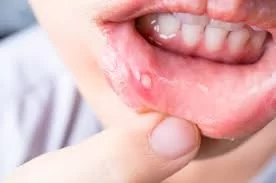
1. Why Mouth Sores Happen
Mouth sores, also known as canker sores or ulcers, are painful lesions that can form inside the mouth, on the gums, or on the tongue. These sores can be caused by a variety of factors, including stress, vitamin deficiencies, hormonal changes, or an injury inside the mouth (like accidentally biting the inside of your cheek). Although mouth sores are generally not serious, they can be uncomfortable and annoying.Preventing mouth sores begins with understanding the factors that contribute to their formation. These sores may also be linked to conditions such as oral infections, food sensitivities, or autoimmune disorders. By identifying the underlying causes, you can take proactive steps to prevent mouth sores from developing in the first place.2. Effective Tips for Preventing Mouth Sores
Prevention is always better than treatment when it comes to mouth sores. Here are some helpful tips to keep your mouth healthy and reduce the risk of developing mouth sores:- Maintain Good Oral Hygiene: Brushing your teeth twice a day and flossing regularly helps prevent oral infections and reduces the likelihood of mouth sores. Use a soft-bristled toothbrush to avoid irritating sensitive areas in your mouth.- Avoid Irritating Foods: Certain acidic foods, such as citrus fruits, tomatoes, and spicy dishes, can irritate the mouth and trigger sores. If you are prone to mouth sores, limit your intake of these foods, especially during flare-ups.- Stay Hydrated: Drinking plenty of water helps maintain a healthy balance in your mouth and prevents dry mouth, which can contribute to the development of sores.- Manage Stress: Stress is a common trigger for mouth sores, so incorporating relaxation techniques like meditation, deep breathing, or yoga can help reduce their occurrence.- Eat a Balanced Diet: Ensure you are getting adequate vitamins and minerals, particularly B vitamins, iron, and zinc, which are essential for maintaining oral health and preventing mouth sores.- Avoid Smoking and Alcohol: Smoking and alcohol consumption can irritate the mouth and slow down healing, making it easier for sores to develop. Cutting back or avoiding these habits can help reduce mouth sore occurrences.3. Common Causes of Mouth Sores
Mouth sores can be caused by several factors, and understanding these causes is key to prevention. Some common causes include:- Injury or Trauma: Biting the inside of your cheek, brushing too aggressively, or using poorly fitting dentures can cause physical trauma to the soft tissues of the mouth, leading to sores.- Hormonal Changes: Women may experience mouth sores during certain stages of their menstrual cycle due to hormonal fluctuations.- Food Sensitivities: Some people develop mouth sores after eating foods they are sensitive to, such as nuts, chocolate, or acidic foods. Identifying and avoiding these trigger foods can prevent outbreaks.- Medical Conditions: Certain conditions, such as autoimmune diseases, gastrointestinal disorders, or vitamin deficiencies, can make individuals more susceptible to mouth sores. It's important to manage these conditions with the help of a healthcare professional.- Stress: Emotional stress and anxiety are common triggers for mouth sores. Managing stress through relaxation techniques can significantly reduce the frequency of outbreaks.4. Treatment and Remedies for Mouth Sores
If you do develop mouth sores, there are several remedies available to alleviate pain and speed up the healing process. While most mouth sores heal on their own within a week or two, these treatments can help you feel more comfortable during that time:- Over-the-Counter Treatments: Topical gels or ointments, such as benzocaine or hydrocortisone, can help reduce pain and inflammation associated with mouth sores.- Saltwater Rinses: Rinsing your mouth with a saltwater solution can help disinfect the area and reduce irritation. Simply dissolve one teaspoon of salt in a glass of warm water and rinse for 30 seconds several times a day.- Aloe Vera: Aloe vera gel has soothing properties and can be applied directly to the sore for relief.- Ice: Applying ice or a cold compress to the affected area can numb the pain and reduce swelling.5. When to See a Dentist for Mouth Sores
While most mouth sores heal on their own, there are times when they require professional attention. You should see a dentist or healthcare provider if:- The sores last longer than two weeks or keep coming back frequently.- The sores are large or extremely painful.- You have difficulty eating, drinking, or speaking due to the sores.- You notice signs of infection, such as pus or fever.Seeking professional help ensures that you receive proper treatment and any underlying conditions are addressed.For expert advice and products to help manage and prevent mouth sores, visit Dentistry Toothtruth and explore solutions tailored to your oral health needs!







 Westgate Dental Arts3.0 (2 review)
Westgate Dental Arts3.0 (2 review) Coventry Family Dental4.0 (247 review)
Coventry Family Dental4.0 (247 review) Familia Dental3.0 (1028 review)
Familia Dental3.0 (1028 review) Dr. Daniel S. Fife, DDS4.0 (31 review)
Dr. Daniel S. Fife, DDS4.0 (31 review) Dentistry At Suburban Square: Michael I. Wollock, DMD4.0 (1228 review)
Dentistry At Suburban Square: Michael I. Wollock, DMD4.0 (1228 review) Comfort Care Dental4.0 (1156 review)
Comfort Care Dental4.0 (1156 review) The Importance of Oral Health Education During Pregnancy for a Healthy Pregnancy
The Importance of Oral Health Education During Pregnancy for a Healthy Pregnancy Why Skipping Dental Checkups Can Lead to Bigger Oral Health Problems
Why Skipping Dental Checkups Can Lead to Bigger Oral Health Problems Best Tips for Brushing Your Teeth Properly for Healthy Gums: Essential Techniques for Oral Health
Best Tips for Brushing Your Teeth Properly for Healthy Gums: Essential Techniques for Oral Health Advantages of Porcelain Dental Restorations
Advantages of Porcelain Dental Restorations How Can Diabetes Cause Tooth and Gum Problems? Preventing and Managing Oral Health Issues
How Can Diabetes Cause Tooth and Gum Problems? Preventing and Managing Oral Health Issues Healthy Habits for Promoting Good Oral Health and Hygiene: Tips for a Healthy Smile
Healthy Habits for Promoting Good Oral Health and Hygiene: Tips for a Healthy Smile